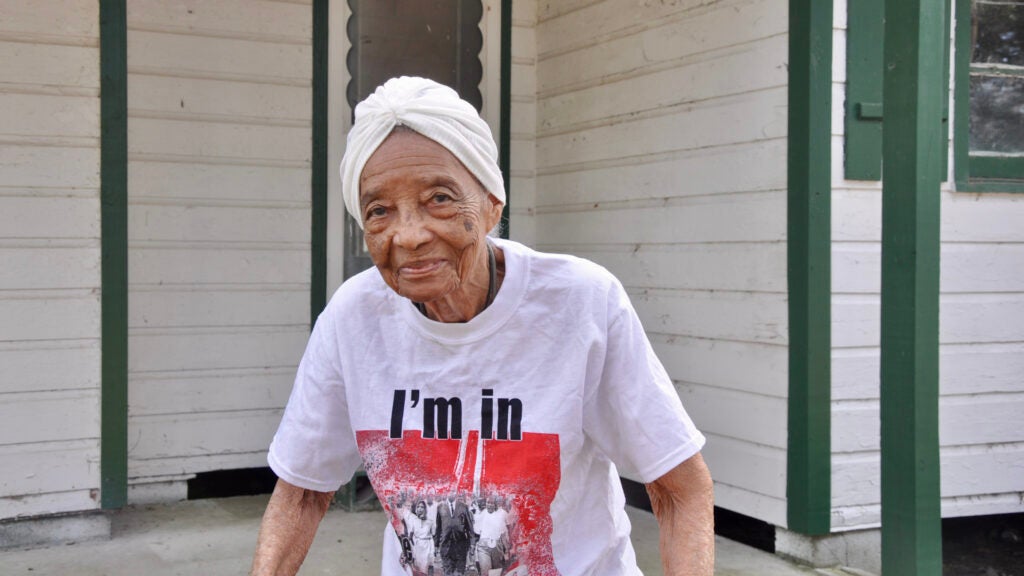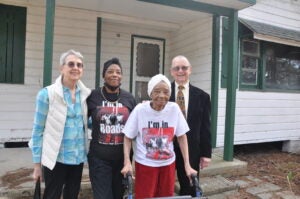Bogalusa Marks 59th Anniversary of Pivotal Civil Rights Moment at Robert “Bob” Hicks House
Published 5:00 pm Thursday, February 1, 2024

- Mrs. Valeira Hicks, now 94 years old, is the wife of the former Mr. Robert "Bob" Hicks of Bogalusa.
|
Getting your Trinity Audio player ready...
|
BOGALUSA, La. — The 59th anniversary of the pivotal moment that sparked the Bogalusa Civil Rights movement was commemorated Thursday, Feb. 1, with a wreath-laying ceremony at the historic Robert “Bob” Hicks House. The house was named to the National Register of Historic places in 2015.
On February 1, 1965, Robert and Valeira Hicks opened their home to two white Congress of Racial Equality (CORE) workers, Steve Miller and Bill Yates. That night, Deputy Sheriff Claxton Knight and Police Chief Doyle Holliday arrived, warning Hicks of a looming mob of 200 white men, threatening murder unless the activists were expelled.
Faced with the harrowing prospect of imminent danger, Robert Hicks, spurred by his commitment to justice and equality, defiantly declared, “Hell, yeah, you’re a guest in my house,” refusing to yield to intimidation. Neighbors soon arrived outside the house with weapons to support Hicks’ and the activists.
Recalling the events of that night, Ms. Hicks, now 94 years old, emphasized her late husband’s unwavering resolve. “He saw what needed to be done,” she said.
James D. Henderson, a distinguished professor emeritus at Coastal Carolina University in Conway, SC, and author currently penning “Bogalusa Boy: A Memoir in White and Black,” paid homage to Hicks’ legacy of courage and resistance by placing a wreath at the Robert “Bob” Hicks House and making a donation to the foundation of the same name.
The bravery shown by the Hicks family and their supporters during that critical night stood as a turning point in the Bogalusa Civil Rights Movement. The house then became the headquarters of the Bogalusa chapter of the Deacons for Defense and Justice.
Decades after that fateful night, the legacy of Robert and Valeira Hicks continues to inspire and resonate with the community. It is a poignant reminder of their bravery and the sacrifices made in the pursuit of equality. Local residents, civil rights activists, and scholars reflect upon the honor their memory has and the progress achieved since those turbulent times.
The Robert “Bob” Hicks House stands not only as a symbol of resistance but also as a testament to the power of ordinary individuals to effect extraordinary change.






